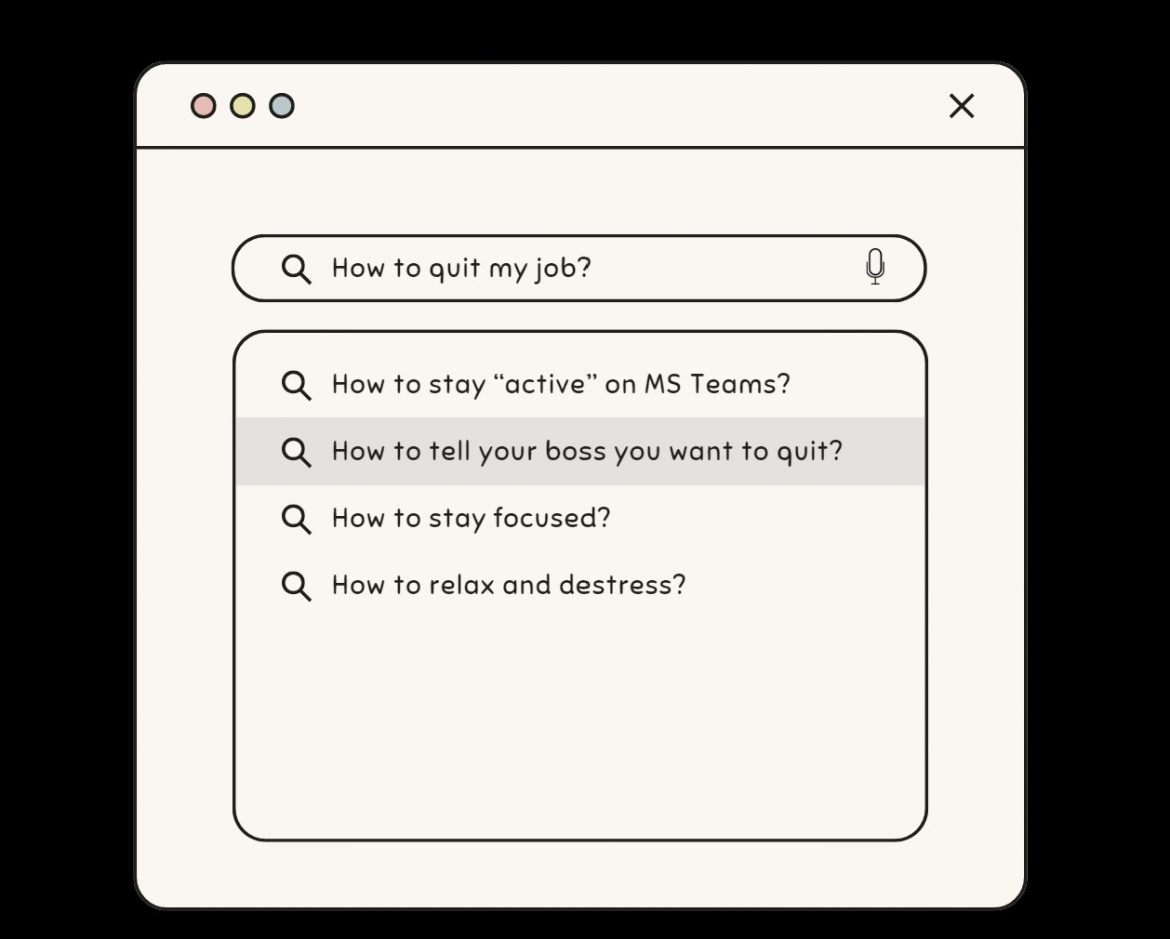Illustration Credit: Emily Tung
Is the secret to surviving university doing less? As the ‘quiet quitting’ trend spreads, how should we respond?
Xiwen Dong, Contributor
As academic pressures and mental health concerns become increasingly prevalent in universities, a trend known as “quiet quitting” is gaining popularity among students. Originally a workplace term referring to doing only the minimum required, it translates in a university setting to completing assignments and exams without engaging beyond what is necessary. This approach has sparked a debate on whether it represents a healthy boundary-setting practice or a troubling sign of lack of motivation and disengagement, raising questions about how students can balance academic success with mental well-being.
The reasons behind this trend go beyond laziness; it points to a common issue that many students face—burnout and overwhelming pressure. As students struggle with the demands of excelling academically while balancing personal responsibilities, they often encounter a growing sense of exhaustion. With the constant demands from coursework, extracurricular activities, sometimes even part-time jobs, many find themselves overwhelmed. Quiet quitting offers a way to manage their workloads by focusing solely on essential tasks, which can be seen as a form of self-preservation. By limiting their efforts to what is strictly necessary to pass or achieve a decent grade, students can avoid additional stress and maintain a more balanced lifestyle. This approach helps establish clear boundaries and avoids excessive demands. Prioritizing mental health while navigating today’s demanding academic and social environments.
While quiet quitting may seem like a practical response to escalating pressure, it has potential drawbacks. By limiting effort to only what is necessary, students may reduce academic engagement and sense of achievement. Those who adopt this approach might miss out on valuable opportunities for growth, enrichment and networking that come from going beyond the minimum requirements. This could place students at a disadvantage in competitive job markets or graduate school applications where engagement and diverse experiences are valued. Moreover, quiet quitting may contribute to a mindset where the emphasis shifts from striving for excellence to merely getting by. This mindset diminishes the value of education as a pursuit of knowledge and intellectual curiosity, reducing it to a purely transactional process to obtain a degree.
Beyond its impact on academic and professional opportunities, quiet quitting can also affect personal growth and well-being. By not going beyond the minimum, students might miss out on experiences that foster intellectual curiosity and personal enrichment. This could lead to a sense of dissatisfaction and unfulfillment, as individuals may find themselves completing tasks merely for the sake of completion rather than genuine engagement. Such an attitude might contribute to a general sense of disengagement from the academic community, which could carry over into future careers. Finding a balance between managing stress and staying motivated is crucial for academic success and personal growth.
In evaluating whether quiet quitting is a sustainable approach for student success, students should aim to manage stress while remaining engaged. While setting boundaries is essential for mental health, it is also crucial to remain motivated and involved in academic pursuits. Universities and educators can play a role in supporting this balance by creating environments that prioritize well-being while encouraging active participation and personal growth.
Quiet quitting, when approached thoughtfully, can offer relief from the intense pressures of student life. However, it should not become a default mode of operation that discourages ambition. By finding a middle ground, students can protect their mental health without sacrificing their academic and professional potential. Ultimately, the challenge lies in navigating these competing demands and ensuring that quiet quitting serves as a strategic tool for balance rather than a sign of disengagement. As you move forward, reflect on how you can use this approach, not just to cope, but to thrive. Balance self-care with the pursuit of your goals, redefine what success means to you, and let your journey through university be one of both resilience and meaningful achievement.




